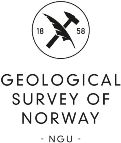

|
Norsk versjon | ||||
| THE INDUSTRIAL MINERAL DATABASE | |||||
| Deposit Area 1871 - 307 | |||||
| (Last updated 16.aug.2016) | |||||
Name of Deposit Area : Ramså |
| (Object Id : 1871,307,00,00) |
| Location |
| County : | Nordland (18) | Municipality : | Andøy (1871) |
| Map 1:50000: | Dverberg (1233-2) | Map 1:250000: | Tromsø |
| Marking point: | Longitude: | 16.0846280 | Latitude: | 69.1744610 |
| EU89-UTM Zone 33 | (Coordinates NOT confirmed) |
| X-coord: | 543032 m. | Y-coord: | 7674196 m. |
|
|
| Commodity |
| Main Type: | Other industrial minerals | Sub Type: | Kaolin |
| Importance |
| Public: | Little Importance (reg. 16.08.2016) |
| Economical: | Minor interest , (Confirmed 16.aug.2016 by Havard Gautneb) |
Mineralization |
| Era: | Period: | |||
| Dating: | Method: | |||
| Genesis: | Form: | |||
| Main texture: | Min. distribution: |
| Main grain size: |
| Strike/Dip: | Direction: | |||
| Plunge: |
| Stratigraphic classification of host rock |
| Era: | Period: |
| Province: | ||
| Geotec.unit: | ||
| Tectonic complex: | ||
| Igneous complex: |
| Group: | Formation: |
Information(s) in free text format |
| Free text |
| Forekomsten må anses som en geologisk kurositet tilknyttet forvitringsprofilet under jura-kritt avsetningene i Ramsåfeltet |
Bibliography: |
| From NGU's Reference Archive: |
| Dalland, A. , 1975 |
| The Mesozoic rocks of Andøy, northern Norway. |
| ;Norges geologiske undersøkelse;TIDSSKRIFTARTIKKEL;NGU; No.316;271-288 pages |
| Abstract: | |
| The Jurassic-Lower Cretaceous sediments of Andøy are found in a small, downfaulted area on the north-east coast of the island. The Mezosoic sequence is more than 650 m thick, and rests non-conformably on weathered basement rocks. The lower part of the sequence (about 85 m thick) consists of coarse-grained sandstones interbedded with some siltstones, bituminous shales and a few coal layers. The age of this part is Middle Jurassic or earliest Upper Jurassic. On top of this are micaceous sandstones and siltstones of Upper Jurassic age, with a total thickness of nearly 300 m. The next formation consists of calcareous sandstones and siltstones (about 80 m), inpart Valanginian in age, and this is followed by a formation consisting of fine-grained siltstones and shales, more than 200 m thick and probably of Lower Cretaceous age. The Mesozoic sequences is largely marine, except for a few layers of freshwater and brackish-water deposits in the lowest part. The sediments are part of an onlap sequence which rapidly thins towards the NW. The main basin of deposition probably lay somewhere to the east, the sediments coming in mainly from the north-west. Sedimentation started as a consequence of faulting in Middle Jurassic time. Another period of faulting occurred in early Cretaceous time. |
| Sturt, Brian A.; Dalland, Arne; Mitchell, John L. , 1979 |
| The age of the Sub Mid-Jurassic tropical weathering profile of Andøya, Northern Norway, and the implications for the late Palaeozoic Palaeography in the North Atlantic region. |
| ;Ferdinand Enke Verlag, Stuttgart;TIDSSKRIFTARTIKKEL;Geologischen rundschau; No.Band 68 (2);523-542 pages |
| Abstract: | |
| Results are given of a programme of K-Ar age determinations from an equatorial weathering profile beneath the Mid-Jurassic unconformity of Andøya, northern Norway. A model is presented where the original age of weathering is considered as Lower Carboniferous with partial resetting of ages during subsequent diagenesis. It is concluded that the Kaolinite of the weathering profile became a closed system of 40Ar diffusion in late Triassic times, and that a suefficient thicness of Mesozoic-Tertiary strata was never developed to occasion the resetting of the ages. The implication of the results is that a former thick cover of Upper Palaezoic age formerly existed in the region which was effectively removed by erosion in late Triassic - early Jurassic times. The results of the study are reviewed in a context of North Atlantic palaeographical evolution. |
| The fact sheet was created on 22.11.2024 |
| Questions or comments regarding the fact sheet can be emailed to: ressursdatabaser@ngu.no |
| Copyright © 2024 Geological Survey of Norway |